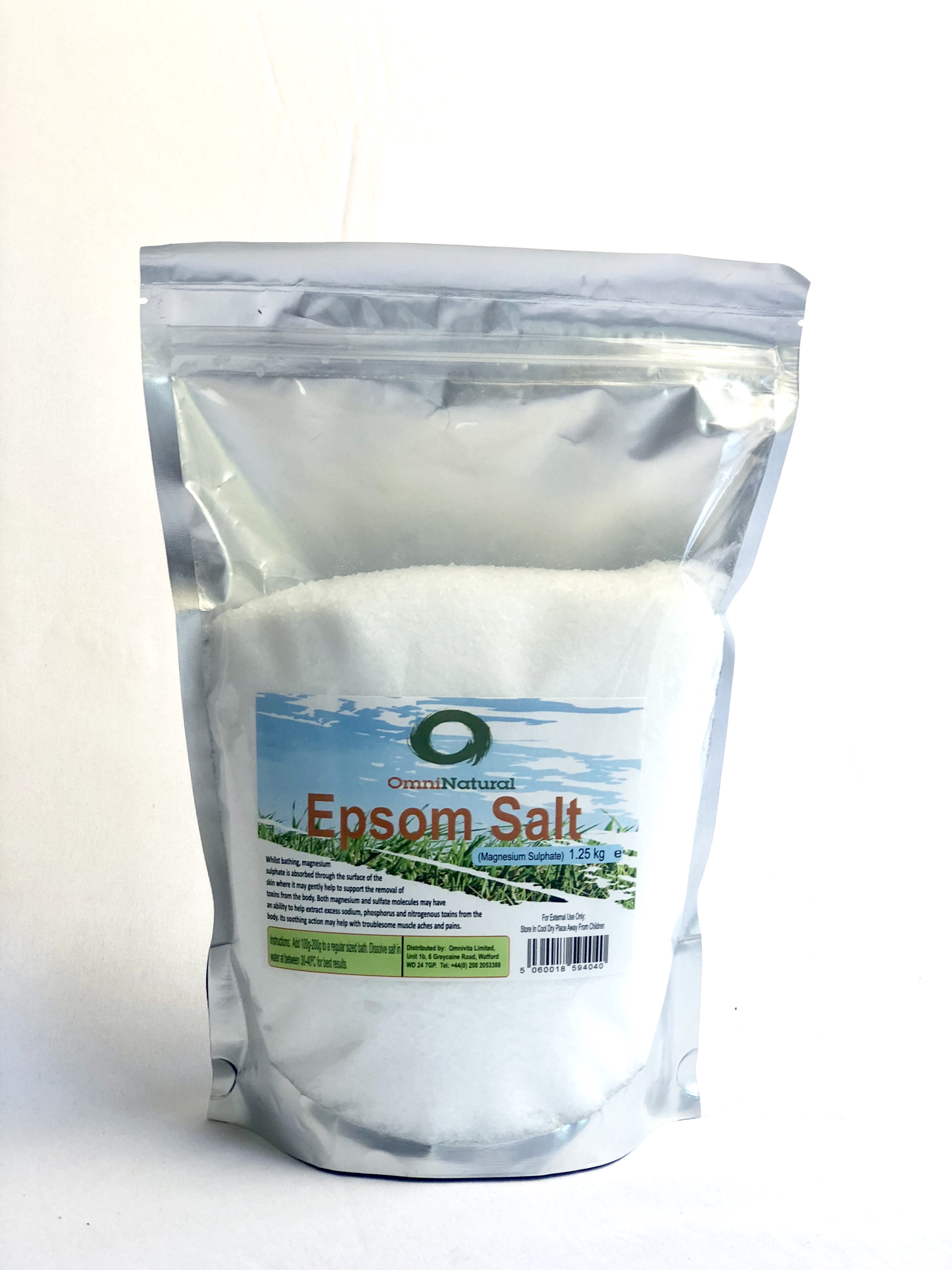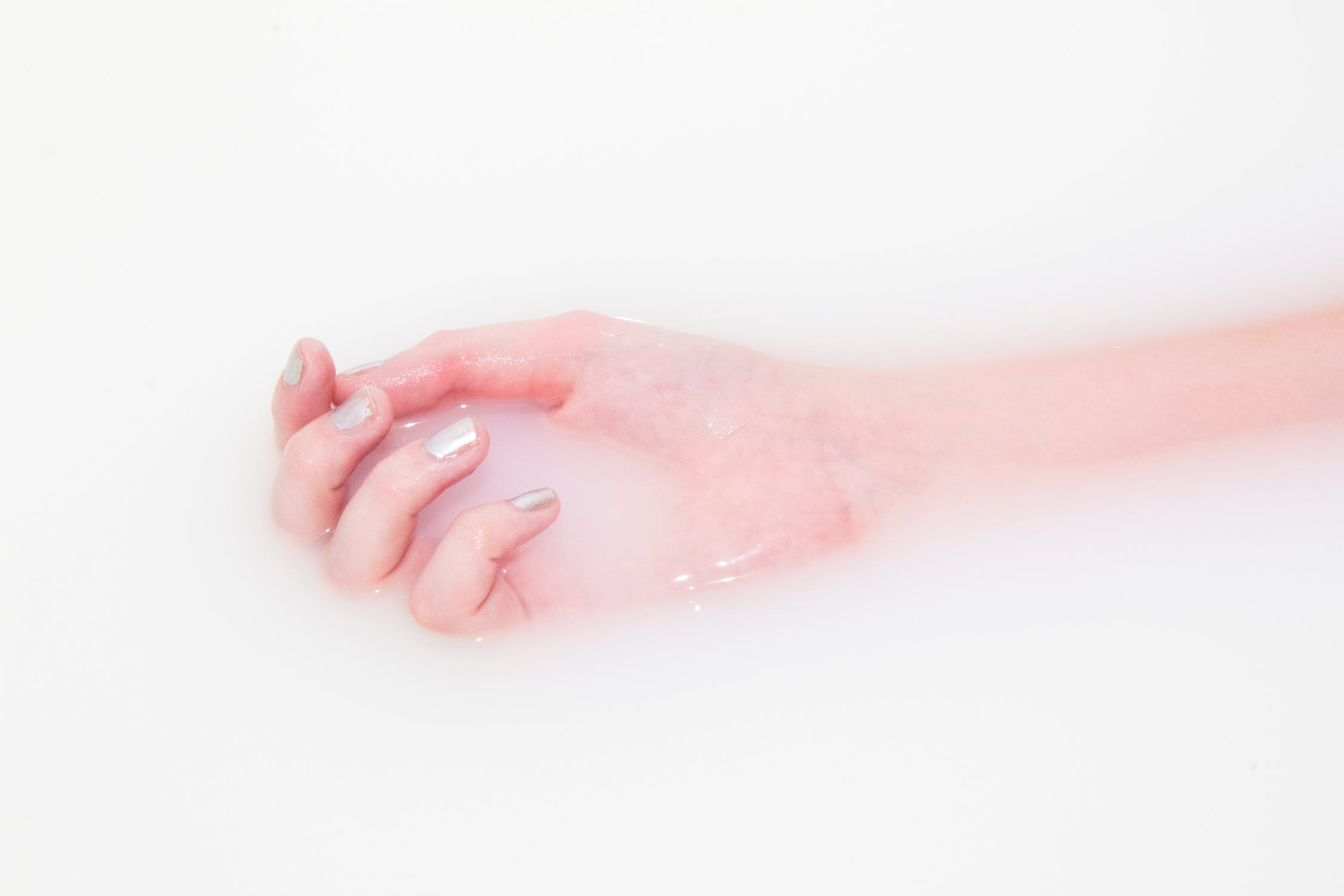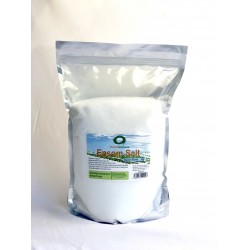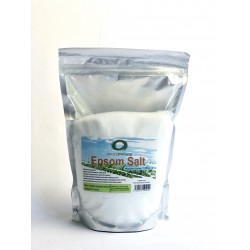Epsom Salt
It was first discovered in the 17th century, when it was distilled from the water of a bitter saline spring at Epsom, in Surrey, England. Despite its name Epsom salt is different from traditional salt. The colourless crystals look like table salt, but it’s actually a mineral compound of magnesium and sulfate (magnesium sulfate).

Research shows that magnesium sulfate is readily absorbed through the skin, making Epsom salt a very poplar addition to baths and foot soaks. Magnesium levels in soil and foods have been decreasing in recent years and most people don’t have optimum levels in their body, and could even be potentially deficient. Certain medications and high alcohol consumption can further deplete magnesium levels.
Magnesium plays a key role in your immune system, nerves, and muscles, as well as keeping your bones and heart strong. Magnesium is involved in over 300 biochemical reactions.
Epsom salt is best known as a component of bath salts, but it offers a wide range of uses, from health & beauty to gardening.

Sress Relief & Relaxation
When the body is stressed it will drain in magnesium and increase levels of adrenaline. Adding Epsom salt into warm water and soaking in it can replenish magnesium levels. It’s also an opportunity to slow down, switch off and take time to look after yourself. Research also shows that magnesium boosts energy and stamina by encouraging the production of ATP, the energy packets made in the cells.
Relieves pain and muscle cramps
When tired, dehydrated and overworked, our muscles can cramp. A lack of magnesium is often the cause of the cramping, and therefore soaking in Epsom salts is an effective way of replenishing magnesium levels and easing the cramping. Epsom salts also have an anti-inflammatory effect which further reduces pain and discomfort.
This is why Epsom salts are a staple for many athletes who train continuously.
Arterial Health
Epsom salts may help to improve circulation and prevent serious cardiovascular illness by decreasing inflammation and protecting the elasticity of arteries. Healthier arteries means less risk of blood clots, plaque build-up, and damage to arterial walls. Try soaking in an Epsom salt bath three to four times per week to reduce stress, lower blood pressure, and improve your cardiovascular health.

More Health Uses:
Athlete’s foot: Soak feet in an Epsom salt bath to help relieve the symptoms of athlete’s foot.
Remove splinters: Soak affected skin area in an Epsom salt bath to draw out the splinter.
Treat toenail fungus: Soak your affected toes in hot water mixed with a handful of Epsom salt three times a day.
Soothe sprains and bruises: Add 2 cups of Epsom salt to a warm bath and soak to reduce the pain and swelling of sprains and bruises.
Ease discomfort of gout: Ease the discomfort of gout and reduce inflammation by adding 2–3 teaspoons of Epsom salts into a basin and immersing the affected foot/joint. The water should be as hot as it is comfortable. Soak for about 30 minutes.
Beauty Uses:
Exfoliate dead skin: In the shower or bath, mix a handful of Epsom salt with a tablespoon of coconut oil and rub all over your wet skin to exfoliate and smoothe skin. You can also add a few drops of your favourite essential oil (maybe lavender or rose). Rinse thoroughly.
Dislodge blackheads: Add a teaspoon of Epsom salt and 3 drops of iodine into a half cup of boiling water. Apply this mixture to the blackheads with a cotton ball.
Remove foot odour: Mix a half cup of Epsom salt in warm water and soak your feet for 10 minutes to remove bad odour, sooth achy feet, and soften rough skin. Try adding a few drops of tea tree oil which has strong anti-fungal properties.
Gardening Uses:
Fertilize your houseplants: Most plants need nutrients like magnesium and sulfur to stay in good health. Sprinkle Epsom salt once weekly to help nourish your houseplants, flowers, and vegetables.
Keep your lawn green: Magnesium sulfate crystals, when added to the soil, provide vital nutrients that help prevent yellowing leaves and the loss of green color (magnesium is an essential element in the chlorophyll molecule) in plants. Add 2 tablespoons of Epsom salt to a gallon of water and sprinkle on your lawn to keep the grass healthy and green.










